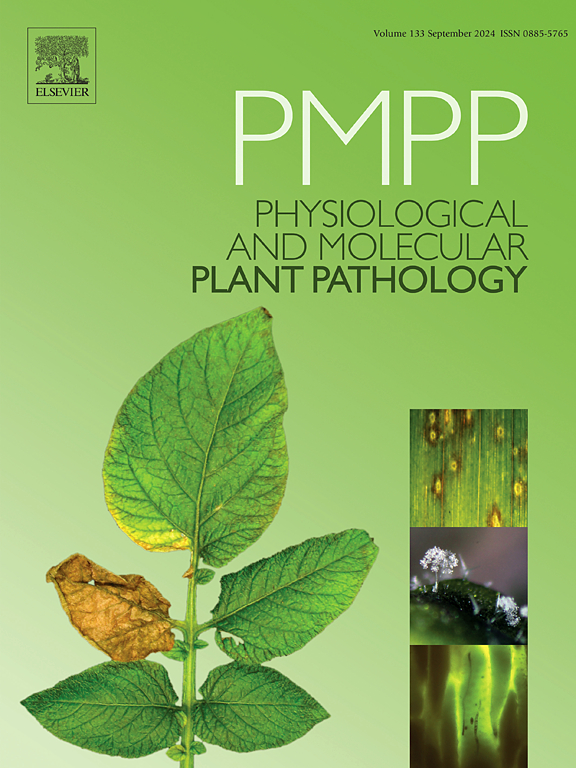Responses of woody hosts to Armillaria species infections: Current insights and knowledge gaps
IF 2.8
3区 农林科学
Q2 PLANT SCIENCES
引用次数: 0
Abstract
Armillaria, and the closely related genus Desarmillaria, are a diverse group of fungi with over 40 species. Many species of Armillaria cause Armillaria root rot in a wide range of hosts. This disease has caused severe losses in diverse ecosystems worldwide, in both natural and managed environments. Despite the considerable efforts invested in assessing the varying degrees of resistance among diverse woody hosts to Armillaria, most host screening studies have neglected the integration of concepts and mechanisms pertaining to woody host defense. While a modest body of knowledge exists concerning host defense mechanisms against Armillaria, the research is predominantly confined to selective host species within forest ecosystems. Thus, a multitude of theoretical and applied questions pertaining to the reactions and resistance of woody hosts to pathogenic Armillaria species continue to remain unanswered. The present review consolidates the current understanding surrounding defense mechanisms exhibited by diverse woody hosts in response to infection by pathogenic Armillaria species. Additionally, it outlines potential avenues for future research in this domain.
臂孢属(Armillaria)和与之密切相关的德氏臂孢属(Desarmillaria)是一类种类繁多的真菌,有 40 多个物种。许多种臂孢属真菌会在多种寄主身上引起臂孢根腐病。这种病害在全球各种生态系统中的自然环境和管理环境中都造成了严重损失。尽管在评估不同木质寄主对阿米拉氏菌不同程度的抗性方面投入了大量精力,但大多数寄主筛选研究都忽视了与木质寄主防御相关的概念和机制的整合。虽然关于寄主对阿米拉氏菌的防御机制的知识不多,但研究主要局限于森林生态系统中的选择性寄主物种。因此,有关木质寄主对致病性阿米拉氏菌的反应和抵抗力的许多理论和应用问题仍未得到解答。本综述巩固了目前对不同木质寄主在应对病原菌阿米拉氏菌感染时所表现出的防御机制的认识。此外,它还概述了该领域未来研究的潜在途径。
本文章由计算机程序翻译,如有差异,请以英文原文为准。
求助全文
约1分钟内获得全文
求助全文
来源期刊
CiteScore
4.30
自引率
7.40%
发文量
130
审稿时长
38 days
期刊介绍:
Physiological and Molecular Plant Pathology provides an International forum for original research papers, reviews, and commentaries on all aspects of the molecular biology, biochemistry, physiology, histology and cytology, genetics and evolution of plant-microbe interactions.
Papers on all kinds of infective pathogen, including viruses, prokaryotes, fungi, and nematodes, as well as mutualistic organisms such as Rhizobium and mycorrhyzal fungi, are acceptable as long as they have a bearing on the interaction between pathogen and plant.

 求助内容:
求助内容: 应助结果提醒方式:
应助结果提醒方式:


